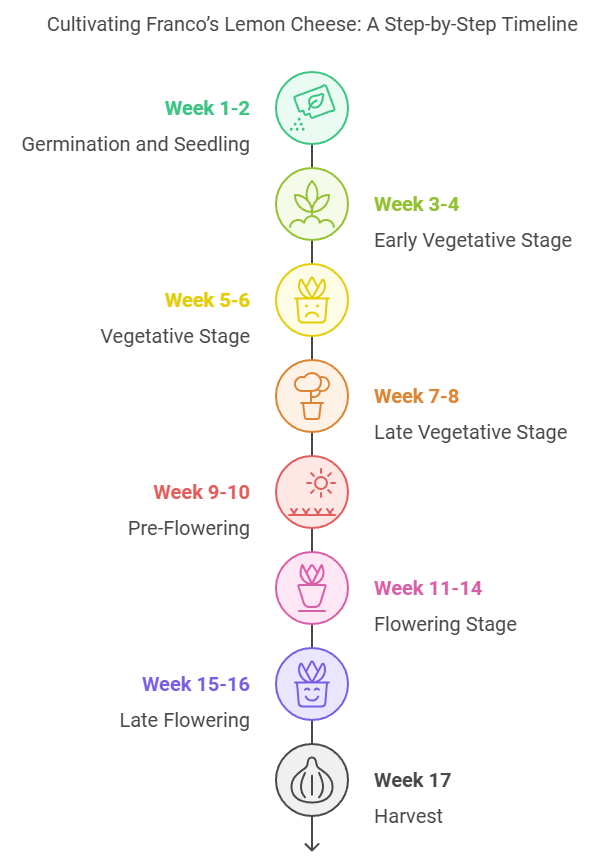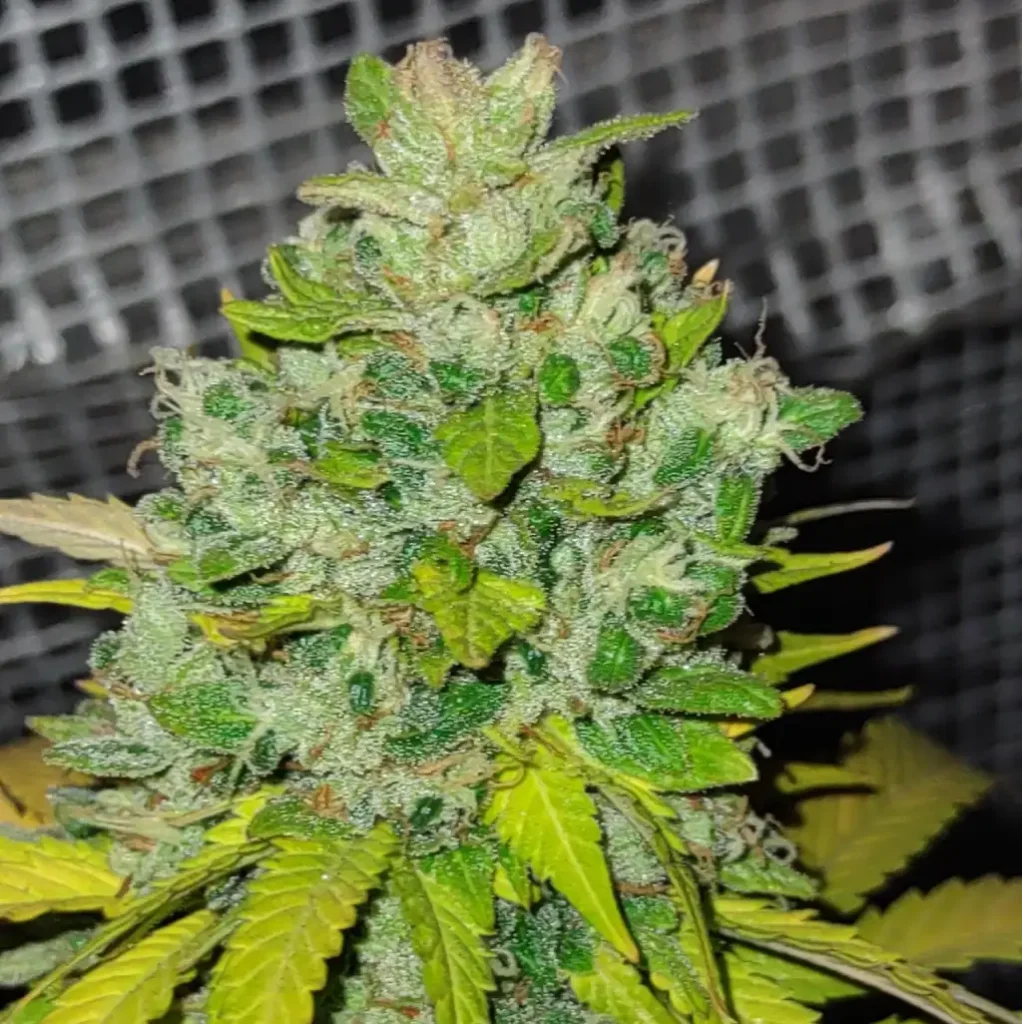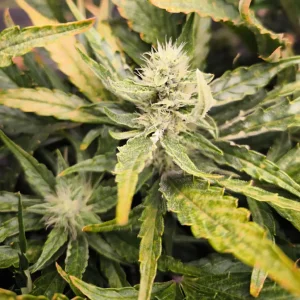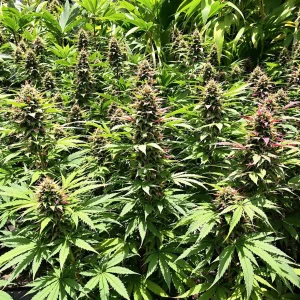Franco’s Lemon Cheese Strain Description
Franco’s Lemon Cheese strain is a distinctive hybrid with a strong genetic lineage derived from Super Lemon Haze and Exodus Cheese. This potent combination yields a strain with vibrant citrus aromas, complemented by the signature pungency of classic Cheese varieties. The lemony fragrance hits right away, giving way to earthy undertones, while the taste carries a delightful mix of tart lemon and hints of creamy cheese. This strain offers uplifting effects, making it ideal for daytime use or when a burst of creativity and focus is needed.
Environmental Requirements for Growing Franco’s Lemon Cheese Strain
It thrives in warm, sunny climates reminiscent of Mediterranean regions. The ideal temperature range is between 70-85°F (21-29°C), with relative humidity levels kept between 40-50% during the vegetative stage, dropping to 30-40% during flowering to prevent mold. Growers need to ensure consistent airflow, as this strain prefers well-ventilated areas, which helps in optimizing the terpene profile that makes it stand out.
Setting Up The Growing Cannabis Space
Indoor Cannabis Cultivation
When cultivating Franco’s Lemon Cheese strain indoors, it’s essential to set up a controlled environment. This strain benefits from high-quality LED lights to simulate the bright conditions it loves. Lights should be kept on an 18/6 schedule during the vegetative phase, switching to 12/12 during flowering. The use of hydroponics or high-quality soil can support healthy nutrient uptake, but soil may enhance the lemony terpene profile even further.
Outdoor Cannabis Cultivation
Outdoors, this strain should be planted in a location with plenty of direct sunlight. This strain can reach impressive heights, often exceeding 6 feet (2 meters) in optimal conditions. Cultivators need to be mindful of late-season rain, as it can lead to mold issues. Using organic fertilizers and compost can boost growth while maintaining the natural flavor Franco’s Lemon Cheese strain is known for.
Propagation and Germination of Franco’s Lemon Cheese Strain
For successful germination, soak this seeds in water for 12-24 hours before placing them in a moist paper towel. Once the seeds crack and sprout a taproot, transfer them into your chosen growing medium. Ensure the young seedlings receive ample light and maintain consistent moisture levels. This strain seedlings are sensitive, so be cautious not to overwater as they establish their roots.
Vegetative Phase of Franco’s Lemon Cheese Strain
During the vegetative stage, it requires ample nitrogen to support its lush green growth. Maintain a temperature between 70-85°F, with consistent airflow to strengthen the branches. Pruning lower foliage can improve airflow and ensure the plant directs its energy to the top growth, resulting in better bud development later on.
Flowering Phase of Franco’s Lemon Cheese Strain
This strain typically enters the flowering stage around 8-9 weeks after switching the light cycle. During this phase, reduce humidity to prevent mold, especially in dense buds. The plant produces dense, resin-covered colas with a distinct lemon and cheese aroma. Phosphorus and potassium levels should be increased to aid in bud development, while nitrogen levels can be gradually reduced.
Cannabis Fertilization and Nutrition
This strain benefits from a balanced nutrient schedule that includes ample nitrogen during the vegetative stage, switching to phosphorus-heavy feeding during flowering. Micronutrients such as calcium and magnesium are also vital, as deficiencies in these can lead to weaker growth. Organic fertilizers can help maintain flavor integrity, emphasizing the strain’s natural terpenes.
Pest and Disease Control for Cannabis Growing
Prevention
Preventive measures include maintaining a clean grow space and using organic insecticides like neem oil. This strain is moderately resistant to pests, but aphids, spider mites, and powdery mildew can still pose challenges. Ensure adequate airflow to reduce humidity, minimizing the risk of fungal issues.
Corrective Actions
If pests or diseases are noticed, introduce beneficial insects such as ladybugs or predatory mites. For fungal issues, consider using potassium bicarbonate or organic fungicides. Quick intervention is key to prevent widespread damage.
Harvesting and Curing for Cannabis Growing
This strain is ready for harvest when around 70-80% of the pistils have darkened, and trichomes are milky white. Harvest the buds carefully, trimming away excess leaves. For optimal flavor and potency, cure the buds in a dark space with 60-65% humidity for at least two weeks, allowing the lemony flavors to mature.
Is Franco’s Lemon Cheese Strain Indica or Sativa?
This strain is a sativa-dominant hybrid, combining the energizing qualities of Super Lemon Haze with the balanced effects of Exodus Cheese. This mix results in a strain that offers a stimulating yet manageable high, perfect for creative endeavors and social settings.
Advantages of Growing Franco’s Lemon Cheese Strain
One of the primary advantages of growing this strain is its high resistance to pests and mold, which makes it beginner-friendly. The sativa-dominant genetics lead to tall plants with high yields, especially when cultivated outdoors. The unique flavor profile and uplifting effects also make it a favorite among users seeking quality cannabis with distinctive aromas.
Disadvantages of Growing Franco’s Lemon Cheese Strain
The height of this strain can be a disadvantage for those with limited indoor space. It requires regular pruning and training techniques to keep it manageable. Additionally, its pungent aroma may require odor control measures, especially for discreet growers.
Problems in Cultivating
This strain can be sensitive to overwatering, particularly during the seedling stage. Nutrient burn is another common issue if growers overfeed, so it’s crucial to monitor nutrient levels closely. Ensuring proper airflow and reducing humidity during flowering can help prevent mold in the dense buds.
Advanced Pest Control for Cannabis Growing
For experienced growers, integrating advanced pest control techniques such as companion planting can be beneficial. Plants like basil or marigold can repel harmful insects. Using beneficial microbes in the soil can also help create a healthier root environment, supporting overall plant resilience.
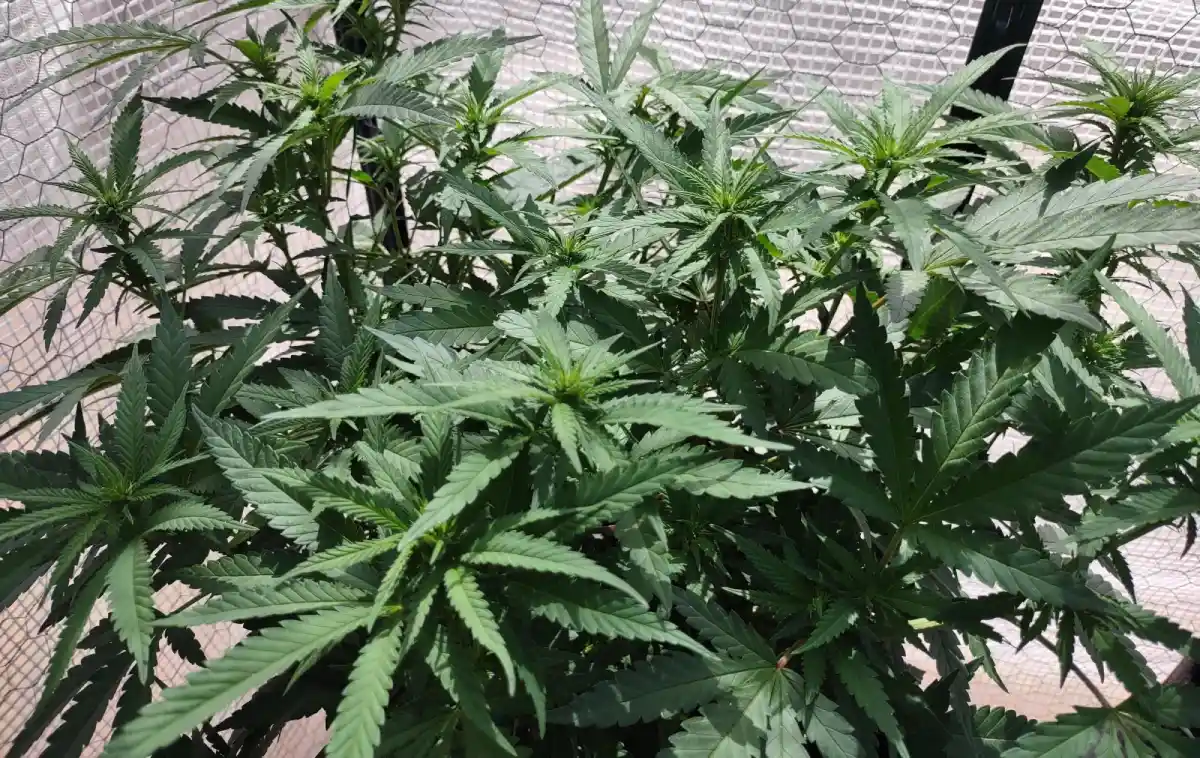
Week-by-Week Growth Plan for Franco’s Lemon Cheese Strain
Week 1-2: Germination and Seedling
Keep the soil moist and ensure seedlings get 18 hours of light daily. Maintain temperatures at 70-75°F.
Week 3-4: Early Vegetative Stage
Introduce light nutrients, focusing on nitrogen. Ensure plants have enough space for root expansion.
Week 5-6: Vegetative Stage
Increase nitrogen feeding. Begin low-stress training to manage height and encourage lateral growth.
Week 7-8: Late Vegetative Stage
Continue with nitrogen-heavy feed, and prune lower leaves to focus energy on upper growth.
Week 9-10: Pre-Flowering
Switch light schedule to 12/12. Begin reducing nitrogen and increasing phosphorus.
Week 11-14: Flowering Stage
Monitor humidity closely, keeping it between 30-40%. Increase potassium for dense bud formation.
Week 15-16: Late Flowering
Flush the plants with pure water to remove excess nutrients. Check trichomes for ripeness.
Week 17: Harvest
Harvest when trichomes are cloudy, trim, and begin curing for best results.
FAQs
What is the THC percentage of Franco’s Lemon Cheese Strain?
This strain typically contains around 20-22% THC, providing a potent, uplifting high.
How long does it take for Franco’s Lemon Cheese Strain to flower?
The flowering period for this strain is approximately 9-10 weeks.
What flavors and terpenes are present in Franco’s Lemon Cheese Strain?
This strain is rich in limonene and myrcene, giving it citrusy lemon flavors with earthy cheese undertones.
Can Franco’s Lemon Cheese Strain be grown both indoors and outdoors?
Yes, this strain grows well both indoors and outdoors, thriving particularly in warm, sunny climates.
What are the medicinal benefits of Franco’s Lemon Cheese Strain?
This strain is known for its uplifting effects, which can help alleviate stress and depression, while also providing moderate pain relief.
